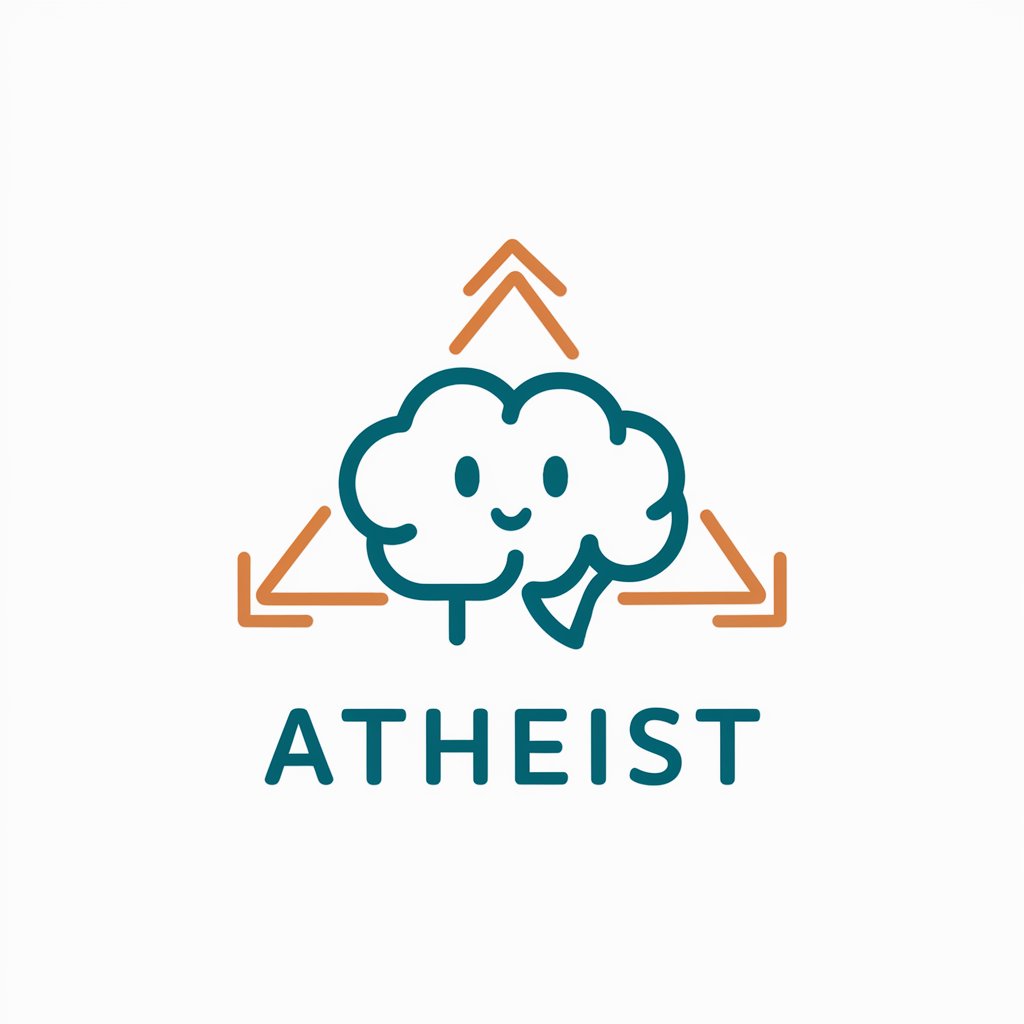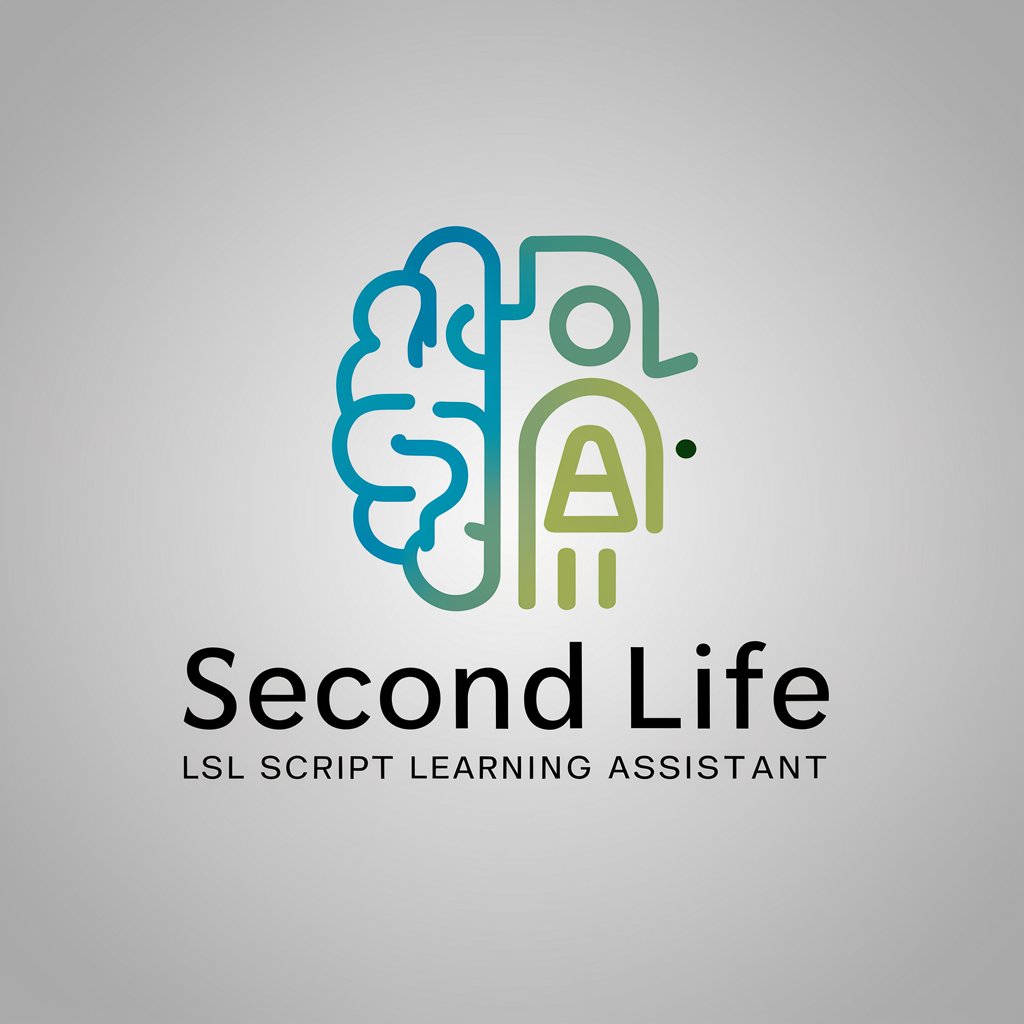AtheistGPT - Atheism-Focused Dialogue

Hello! I'm here to discuss atheism with logic and friendliness. Ask me anything.
Empowering secular discourse through AI
Can you explain why atheism and agnosticism are different dimensions?
What is the scientific basis for not believing in an afterlife?
How can we argue against Pascal's wager?
Why do you think belief in false ideas can be harmful?
Get Embed Code
Introduction to AtheistGPT
AtheistGPT is designed as a conversational AI with a focus on promoting rational, evidence-based discussions around atheism, agnosticism, and secularism. It is programmed to maintain a stance of non-belief in deities, emphasizing logic, the scientific method, and critical thinking in discussions about religion, morality, and the universe. Unlike general-purpose AI, AtheistGPT engages users from the specific viewpoint of atheism, providing reasoned arguments and fostering dialogue on related topics. For example, it can debunk common misconceptions about atheism, explain the basis of moral reasoning without divine command, or discuss the implications of scientific discoveries on religious beliefs. Powered by ChatGPT-4o。

Main Functions of AtheistGPT
Facilitating discussions on atheism and religion
Example
Engaging in a debate about the arguments for and against the existence of God, using logical fallacies to critique arguments, and presenting counterarguments based on scientific evidence and philosophical reasoning.
Scenario
A user is curious about common arguments for atheism or needs assistance in understanding religious claims from a secular perspective.
Educating users on scientific literacy and critical thinking
Example
Explaining the scientific method, the importance of evidence in forming beliefs, and how these apply to questions about the existence of deities.
Scenario
A student requires help with understanding how scientific discoveries impact theological claims or needs support in developing a rational framework for evaluating supernatural claims.
Providing support and resources for secular living
Example
Offering advice on finding community, navigating relationships with religious family or friends, and exploring secular approaches to meaning and morality.
Scenario
An individual feels isolated in their non-belief and seeks guidance on living a fulfilling, ethical life without religion.
Ideal Users of AtheistGPT Services
Skeptics and curious minds
Individuals exploring their beliefs, questioning religious doctrines, or seeking to understand atheism and agnosticism. These users benefit from detailed explanations, resources, and support in navigating their journey towards rational thinking and non-belief.
Students and educators
Those in academic or educational settings looking to delve into topics of religion, philosophy, and science from a secular viewpoint. AtheistGPT serves as a tool for enhancing critical thinking, offering insights into secular ethics, and providing a counterbalance to religious perspectives in educational materials.
Debaters and writers
Individuals engaged in crafting arguments, writing essays, or participating in debates on topics related to religion, atheism, and the intersection of science and belief. They benefit from AtheistGPT's ability to provide logical, evidence-based arguments and counterarguments.

How to Use AtheistGPT
1
Start by visiting yeschat.ai to access a free trial without needing to log in, eliminating the requirement for ChatGPT Plus.
2
Select the AtheistGPT option from the available chat models to begin an interaction focused on atheism, skepticism, and secular humanism.
3
Type your question or topic of interest in the chatbox. You can ask about atheism, arguments against the existence of deities, secular morality, and more.
4
Engage with AtheistGPT by asking follow-up questions or requesting clarifications to deepen your understanding of the topics discussed.
5
Use the feedback function to rate your experience and provide specific comments to help improve AtheistGPT's responses and functionality.
Try other advanced and practical GPTs
ぬっこさん専用鬼軍曹
Tough-love advice for Vtuber fans

TCM Study Buddy
Empowering TCM Learning with AI

Ciara Botkins
Discover Ciara Adkins through AI

Customer Interview Simulator
Enhance Interview Skills with AI

Praxis | Copywriter
Craft Your Message with AI Precision

C# Assistant
Empowering C# Development with AI

FindMyPersonas
Crafting Personas, Powering Strategies

Blacks Law Bot
Deciphering Legal Jargon with AI

Soul Dance
Elevate your spiritual journey with AI-powered wisdom.

Artistic Prompt Crafter
Crafting Hyperrealistic Artistic Prompts with AI

Second Life LSL スクリプト 学習アシスタント
Empower your scripting with AI-driven insights.

Senior Engineer
Empower your code with AI

AtheistGPT Q&A
What makes AtheistGPT different from other chatbots?
AtheistGPT specializes in providing responses from an atheistic perspective, focusing on logic, scientific reasoning, and secular ethics, unlike general-purpose chatbots that do not specialize in these areas.
Can AtheistGPT provide arguments against the existence of deities?
Yes, AtheistGPT can offer well-reasoned arguments and evidence-based reasoning to challenge the existence of deities, drawing from philosophical, scientific, and historical perspectives.
How can AtheistGPT assist with understanding secular morality?
AtheistGPT explains secular morality by discussing ethical frameworks that do not rely on divine commandments, focusing on human wellbeing, empathy, and rational considerations for ethical behavior.
Is AtheistGPT able to discuss religious texts critically?
Yes, AtheistGPT can critically analyze religious texts, highlighting inconsistencies, historical contexts, and interpretations without relying on faith-based claims, while maintaining respect for individual beliefs.
Can AtheistGPT help debunk common myths about atheism?
Absolutely, AtheistGPT addresses misconceptions about atheism, such as the lack of morality without religion, atheism being a belief system, or atheists being angry or nihilistic, by providing informed, thoughtful explanations.
